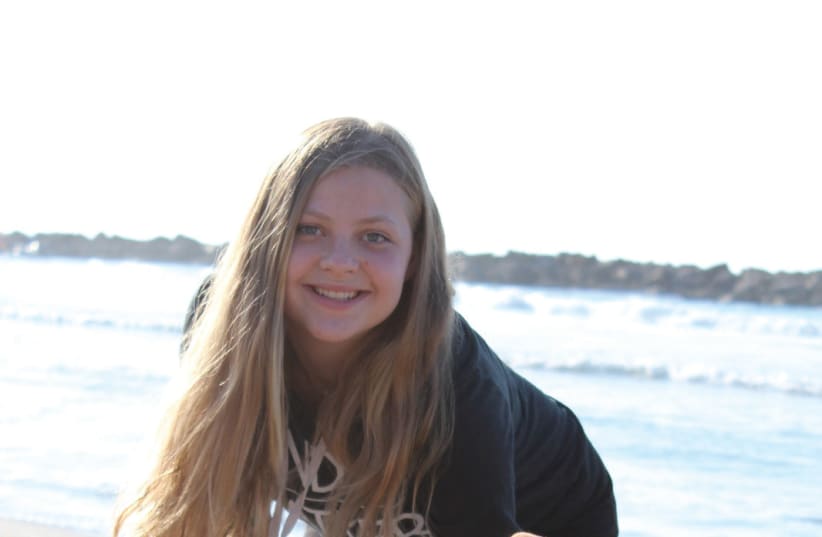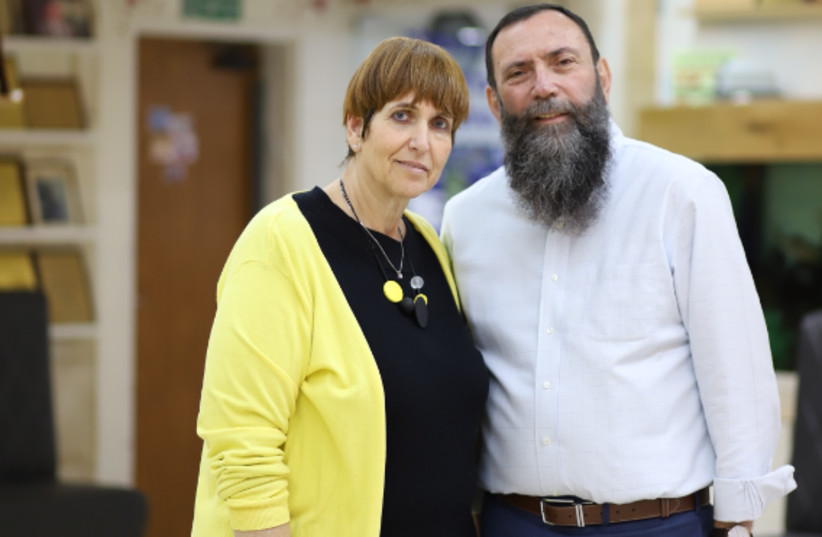On the outskirts of Netanya, in the heart of the Emunah Bet Elazraki Children’s Home, is a unique human experience. It takes place at the Ira & Diana Riklis Seminary, Midreshet Torat Chessed, where young women from around the world come to study Torah, learn about and explore Israel, but mainly, to live chessed (acts of kindness). When they return home, they are no longer the same.
It doesn’t take more than a few minutes to understand that MTC is not just another institution of Torah studies, and to realize that the girls attending the seminary are quality young women, here to create change. The seminary staff does all that it can to provide the girls a special experience – knowledge that enriches both the mind and soul, values that they take with them for the rest of their lives, and an impactful and formative experience.
The MTC Seminary was founded by Rabbi Yossi Goldin in 2012, and is currently run by Shira Melamed. Its foundation was a combination of Torah studies and acts of chessed. The initial concept was that girls attending the seminary should help change the lives of others and, in so doing, undergo personal change, as well.
The seminary was designed for girls who want to do good in an atmosphere of learning, growth and connection to their roots. The aim was that, upon completing an academic year at the seminary, each young woman would return abroad, filled with powerful personal, Jewish and national emotions of love for humankind, peoplehood and the land.
TO DO chessed, the seminary students do not have to leave the campus where they study, live and sleep. The Children’s Home is the warm and nurturing home for hundreds of children at risk. The children are referred to us by the welfare authority, after being removed from their homes by court order due to danger and familial dysfunction.
At the Children’s Home, a multidisciplinary team provides the children with all of their needs. The seminary students naturally integrate within this unique framework, and are an integral part of the children’s lives.
Every day from 3-7 p.m., the students spend their afternoons with the children of the Children’s Home. Each student is responsible for a particular group, and works with them throughout the year. Activities are conducted individually and in groups. The girls apply their skills and talents to impart knowledge and enrichment, including teaching English.
Their main role is to support the children, offer them love and support, instill in them a sense of confidence – and just to be there for them, true to the Children’s Home motto. The seminary students are an integral part of the staff accompanying the children, providing them with a true role model.
In addition to their daily routine, the seminary students embark on monthly trips, explore various communities around Israel and spend Shabbat in different places. However, as one student put it, “Shabbats spent with the kids are the most fun – we talk, play cards; there are no cellphones and it’s all about warmth and love”.
Beyond the knowledge that they acquire through their studies, the children become the girls’ “teachers” as well. It is the children who teach them what is important in life, the deep meaning of parenthood, and why they must cherish everything they may have once taken for granted.
On the other hand, the seminary students provide our children with a sense of security and quality time; they are bound by mutual love, and they even become ambassadors for the Children’s Home abroad.
“One cannot spend a year at the seminary,” said Melamed, “without leaving a changed person”.
The author has been director of Emunah Bet Elazraki Children’s Home since 1990.

